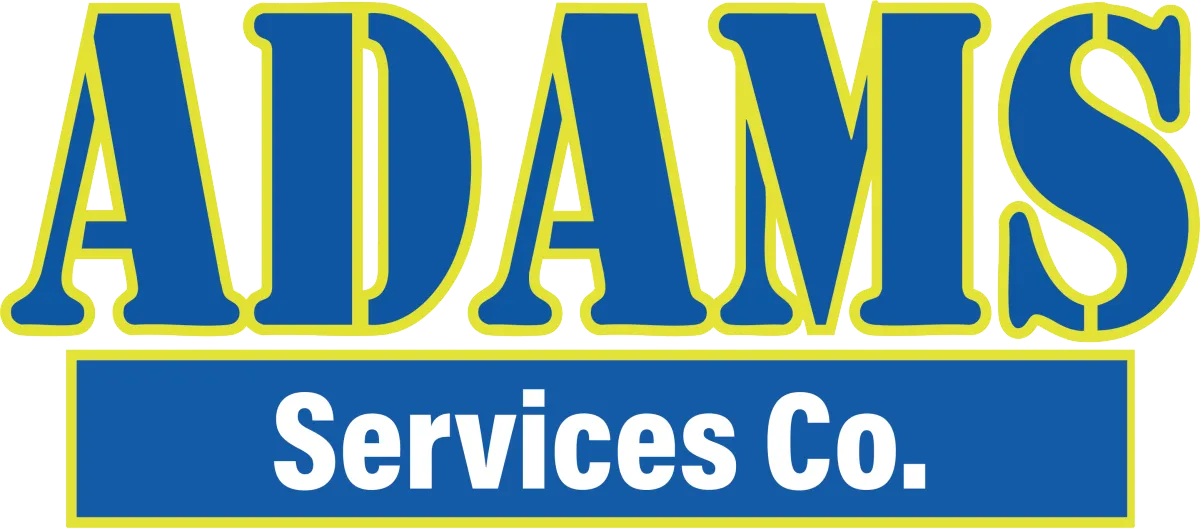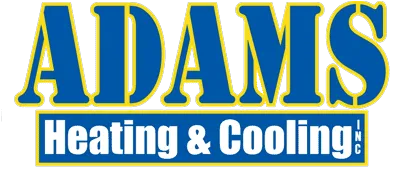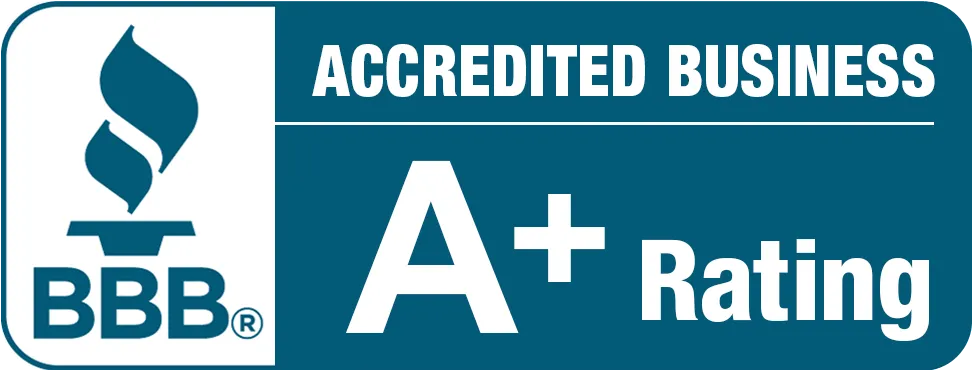Adams Heating & Cooling
HVAC Experts You Can Trust
Serving Tuscaloosa, AL, Birmingham, AL, and surrounding areas since 1982
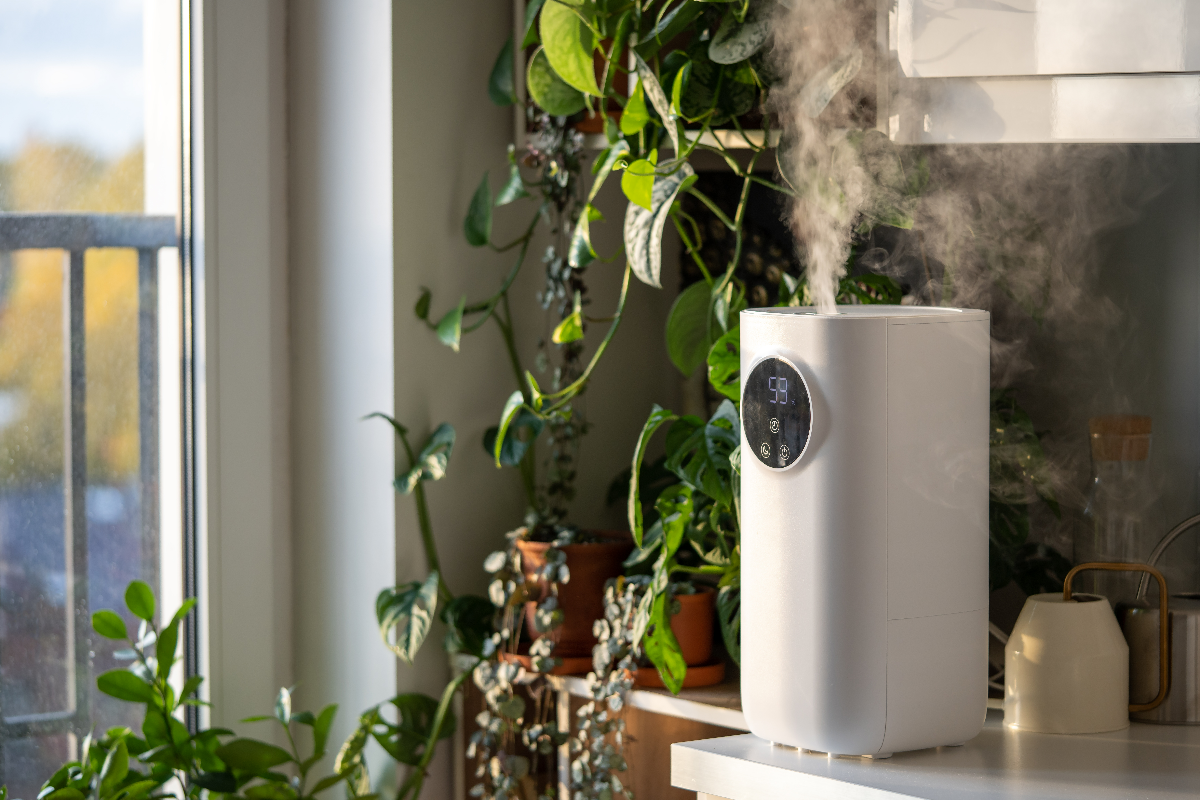
7 Dangerous Myths About Indoor Air Quality in Your Home — Debunked by Local HVAC Experts
What You Can’t See Can Hurt You
You vacuum regularly, dust the furniture, and maybe even light a few candles to keep your home smelling fresh—but what about the air you breathe? Many homeowners assume that a clean-looking house equals clean air. Unfortunately, that’s one of the biggest myths we hear.
At Adams Heating & Cooling, we’ve served families across Tuscaloosa and Birmingham for over 40 years. One thing is clear: indoor air quality (IAQ) is often misunderstood—and overlooked. With rising concerns about respiratory health, allergies, and energy efficiency, it’s more important than ever to understand what’s really going on in your home’s air.
In this guide, we’re debunking the top myths about indoor air quality. Whether you're worried about your kids’ allergies or just want to breathe a little easier, these insights will help you separate fact from fiction—and protect what matters most.
Myth #1: “If I Can’t Smell Anything Bad, My Air Must Be Clean”
This is one of the most dangerous assumptions homeowners make. The truth is, many serious indoor air pollutants don’t smell like anything at all. Carbon monoxide is entirely odorless—and extremely dangerous. Radon, a naturally occurring radioactive gas, is just as silent. And many volatile organic compounds (VOCs) found in household cleaners, paints, and even furniture off-gassing have no detectable scent but can build up in poorly ventilated spaces.
What’s more, some of the most common indoor air offenders—dust mites, pet dander, and mold spores—can be thriving in your home right now without ever alerting your nose. These particles are small enough to remain airborne for hours and can trigger respiratory issues, allergies, and long-term health complications.
Here in Alabama, our warm, humid climate creates the perfect conditions for mold growth, especially in ductwork and areas with poor ventilation. You might not smell anything unusual, but mold colonies could be hidden behind walls or lingering inside your HVAC system, slowly contaminating the air your family breathes.
And don’t be fooled by air fresheners or scented candles—they don’t clean the air. In fact, many release VOCs themselves, masking odors rather than addressing the root issue.
What You Can Do:
Use an indoor air quality monitor to detect invisible threats like VOCs and particulate matter.
Schedule a professional duct inspection—especially if you’ve never had your system cleaned.
Invest in proper air filtration: HEPA filters, UV lights, and whole-home purifiers can all help remove the contaminants your nose can’t detect.
Remember: If clean-smelling air was a guarantee of clean air, your HVAC wouldn’t need filters in the first place.
Myth #2: “Changing My HVAC Filter Once a Year Is Fine”
If there’s one HVAC habit we wish more homeowners would change, it’s this one. Waiting until your annual maintenance visit—or worse, until the filter looks visibly dirty—isn’t just ineffective, it’s potentially harmful.
Your HVAC filter plays a crucial role in trapping dust, allergens, pet hair, mold spores, and other airborne particles. When that filter becomes clogged, not only does your system have to work harder (raising your energy bills), but it also allows pollutants to circulate freely through your home.
In a typical Alabama household—especially one with kids, pets, or high humidity—you should be changing your filter at least every 60 to 90 days. During peak seasons or if someone in the home has allergies or respiratory issues, monthly replacements may be necessary.
Why It Matters in Alabama:
Our local climate means your HVAC system works hard nearly year-round. High pollen counts in spring, humidity in summer, and dust from heating cycles in winter all contribute to faster filter clogging. Waiting too long can result in reduced airflow, uneven temperatures, and even premature system wear.
What You Can Do:
Set a reminder to check your filter monthly—especially during heavy use periods.
Upgrade to a higher-efficiency filter (like MERV 11 or higher) if air quality is a concern.
Ask about Adams Heating & Cooling’s maintenance plans—we’ll handle it for you and keep your system running smoothly.
Don’t think of filter changes as a chore—think of them as an easy way to protect your family’s health and your HVAC investment.
Myth #3: “Houseplants Alone Can Clean My Indoor Air”
It’s a comforting thought: a few leafy friends on the windowsill quietly scrubbing your air clean. While plants do offer some benefits—like mild humidity control and psychological comfort—their air-purifying power is wildly overstated.
The myth stems from a well-known NASA study from the 1980s, which found that certain plants could remove chemicals like benzene and formaldehyde in lab conditions. But what the headlines missed is that it would take hundreds of plants per room to replicate that effect in a real home.
So while we love a good pothos or peace lily as much as the next person, relying on them for meaningful air purification is like using a straw to drain a swimming pool.
The Real Risk:
Believing this myth can lead homeowners to skip more effective air quality solutions—like proper ventilation, filtration, and duct cleaning. That’s where real improvements happen, especially in homes here in the Southeast where pollen and humidity create unique air quality challenges.
What You Can Do:
Use houseplants for decor and a touch of nature—but not as a substitute for HVAC-integrated air quality systems.
Consider whole-home air purifiers or advanced filtration options compatible with your HVAC system.
Book an IAQ assessment to determine what’s actually floating around in your air—and what it’ll take to clean it up.
Plants are lovely—but they’re not a strategy. Think of them as companions, not custodians.
Myth #4: “Ventilating With Open Windows Is the Best Way to Improve Airflow”
There’s something refreshing about opening the windows on a breezy day—but when it comes to indoor air quality, this approach can do more harm than good, especially here in Alabama.
While fresh air is vital, simply cracking a window doesn’t guarantee cleaner or healthier air. In fact, it can invite in a host of new pollutants—pollen, humidity, dust, smog, even mold spores. And if you’re near construction, traffic, or agricultural areas, you may be exposing your family to even higher concentrations of airborne irritants.
In Alabama’s Climate, Open Windows Can Backfire
The Southeast is known for high humidity, and opening windows only introduces more moisture into your home. That added moisture can feed mold growth and make your HVAC system work harder to maintain temperature and humidity levels. It’s a quick way to sacrifice both comfort and air quality.
What You Can Do Instead:
Use mechanical ventilation systems integrated into your HVAC setup. These systems bring in fresh air while filtering out pollutants and managing humidity.
Consider energy recovery ventilators (ERVs), which precondition incoming air for maximum comfort and efficiency.
Keep your windows closed on high pollen days, and always check local air quality indexes before airing out your home.
Controlled ventilation beats uncontrolled exposure—every time.
Myth #5: “If No One Is Sick, There’s No Air Quality Problem”
It’s a common misconception—if everyone in the house seems fine, the air must be fine too. But indoor air quality problems often go unnoticed until they’ve already caused long-term effects.
Just because your family isn’t coughing or sneezing doesn’t mean the air is clean. Respiratory issues, allergies, fatigue, poor sleep, and even concentration problems can all be subtle symptoms of compromised air. And for vulnerable individuals—like children, seniors, or anyone with asthma—these effects can build up gradually, often without any obvious warning signs.
The Hidden Risk:
Particulate matter (PM2.5), VOCs, and biological contaminants like mold and bacteria don’t always cause immediate reactions. Instead, they slowly impact lung health and immune response over time. And since modern homes are built to be energy efficient, they often trap these pollutants inside—making ventilation and filtration even more important.
In Alabama, where seasonal allergens and humidity are part of daily life, even short-term exposure to poor air can lead to lingering symptoms that families might not connect to IAQ at all.
What You Can Do:
Install IAQ sensors or smart thermostats that track air quality indicators.
Schedule a professional indoor air assessment—especially if someone in your home has chronic congestion, frequent headaches, or worsening allergy symptoms.
Don’t wait for symptoms to appear—act preventively. Clean air benefits everyone, not just those who feel it first.
Just like you wouldn’t skip oil changes because the car isn’t making noise, don’t wait for your air to “act up” before you take it seriously.
Myth #6: “My Ducts Don’t Need Cleaning — They’re Hidden Anyway”
Out of sight, out of mind—right? Not when it comes to your ductwork. Just because you can’t see inside your ducts doesn’t mean they aren’t collecting dust, debris, mold, and other pollutants that can directly affect the air you breathe.
Over time, your HVAC system circulates the air in your home over and over again—up to 5 to 7 times a day. If your ductwork is lined with contaminants, that same air is constantly being pushed back into your living spaces. You may notice more dust settling on furniture, musty smells, or worsening allergies—but not connect the dots to your ducts.
Why This Matters in Humid Climates:
Alabama’s humidity creates the perfect breeding ground for mold and mildew in duct systems, especially if there are any leaks or condensation buildup. This means you could be unknowingly distributing mold spores throughout your home every time your system runs.
What You Can Do:
Have your ducts inspected every few years, especially if your home is older or you’ve recently renovated.
Look for signs: visible dust on vents, musty odors, inconsistent airflow, or unexplained respiratory symptoms.
Consider professional duct cleaning and sealing from Adams Heating & Cooling to remove contaminants and improve system efficiency.
Your ducts are the lungs of your home—when they’re dirty, every breath you take reflects it.
Myth #7: “Air Fresheners and Scented Candles Improve Air Quality”
A home that smells like vanilla or ocean breeze might feel clean—but fragrances don’t equal freshness. In fact, many commercial air fresheners and scented candles can worsen indoor air quality by releasing chemicals into the air, not removing them.
Most plug-ins, sprays, and candles emit volatile organic compounds (VOCs)—a group of chemicals that can irritate the eyes, nose, and throat and may contribute to more serious health issues with long-term exposure. These substances can also react with indoor ozone to form formaldehyde and other pollutants.
The Irony:
Instead of neutralizing odors or improving IAQ, these products often mask the real issue—like mold, dust, or poor ventilation. That floral scent? It might just be covering up a deeper problem in your HVAC system or ductwork.
And in homes with children, pets, or respiratory conditions, exposure to VOCs can be especially risky. It's not just about preference—it's about health.
What You Can Do:
Switch to natural alternatives: beeswax candles, essential oil diffusers (used sparingly), or baking soda-based deodorizers.
Target the source, not the symptom: eliminate pollutants by improving filtration, cleaning ducts, and managing humidity.
Invest in a whole-home air purification system that works with your HVAC to clean the air effectively—without adding chemicals.
Clean air shouldn’t have to “smell” like anything. Real freshness is invisible—and far healthier.
How to Actually Improve Your Home’s Air Quality
Now that we’ve cleared the air on common myths, it’s time to focus on facts—and what you can actually do to make your home safer, healthier, and more comfortable. Clean air isn’t just a luxury—it’s a foundation for wellness, especially in homes with children, elderly family members, or anyone with allergies or respiratory conditions.
A Healthier Home Starts With a Few Smart Moves:
1. Change Your Filters More Often
Think of your HVAC filter as your home’s first line of defense. A clogged filter can’t trap pollutants, and it makes your system work harder—raising energy costs and reducing efficiency. If you have pets, allergies, or live in a high-pollen area like Alabama, replace your filter every 30–60 days.
2. Clean and Seal Your Ductwork
Dust, dander, mold spores, and even pests can hide in your ductwork, circulating air full of contaminants. Professional duct cleaning every few years—and sealing leaky ducts—improves both air quality and system performance.
3. Control Humidity
Too much moisture encourages mold and mildew; too little can dry out your skin and irritate your lungs. Aim to keep indoor humidity between 30–50%. Whole-home dehumidifiers, especially during muggy Alabama summers, can make a huge difference.
4. Ventilate the Right Way
Opening windows may feel refreshing, but it can bring in pollen, smog, and moisture. Instead, invest in mechanical ventilation systems or energy recovery ventilators (ERVs) that bring in filtered fresh air while keeping your HVAC system efficient.
5. Purify Your Air—The Smart Way
Whether it’s HEPA filters, UV lights, or whole-home air purifiers, today’s IAQ technology can trap or destroy allergens, microbes, and chemical pollutants 24/7. The best systems integrate directly with your HVAC setup for full-home protection.
Let’s Clear the Air—Together
At Adams Heating & Cooling, we’ve helped hundreds of families in Tuscaloosa and Birmingham get to the root of their indoor air quality concerns. We don’t sell gimmicks—we offer real solutions backed by decades of expertise and the latest HVAC technology.
When you schedule an Indoor Air Quality Assessment with us, you’ll get:
A thorough inspection of your HVAC system and ductwork
Air quality readings and analysis using industry-standard tools
Personalized recommendations tailored to your home, your family, and your goals
Clean air means better sleep, fewer allergies, more energy—and greater peace of mind.
So if you’ve been wondering about the air you breathe, or if you’re ready to stop relying on air fresheners and hope, let’s talk. We’ll help you create the safe, healthy home environment your family deserves.
Call us today at 205-462-7617 to schedule your Indoor Air Quality Assessment. We're here when you need us—24/7.
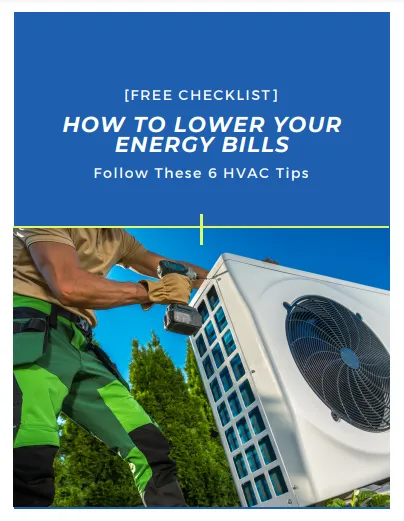
Tired of seeing those sky-high electric bills?
It's time to take control of your energy costs, and your HVAC system is a great place to start!
No more sweating over those monthly expenses!
Grab our FREE checklist to discover simple, yet effective, ways to lower your energy consumption and save money on your electric bill.
Inside this handy guide, you'll find:
Easy-to-follow tips to optimize your HVAC system's efficiency.
Common energy-wasting mistakes to avoid.
Actionable steps to make a real difference in your energy usage.
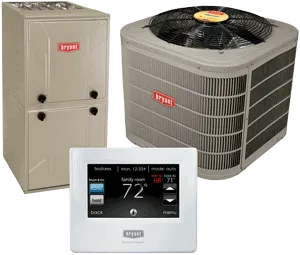
Free Estimates on Complete System Replacement
Call Now 205-339-6540
Office: 3415 Hargrove Road East,
Tuscaloosa, AL 35405
Office: 1236 Blue Ridge Blvd, Suite 111, Hoover, AL 35226
Call 205-339-6540
Call 205-606-4222
Email: [email protected]
